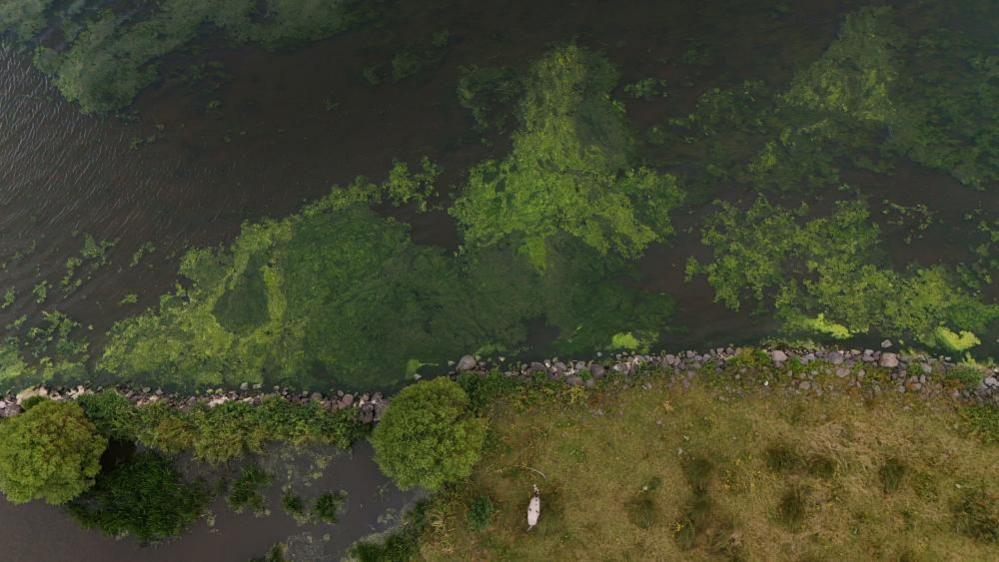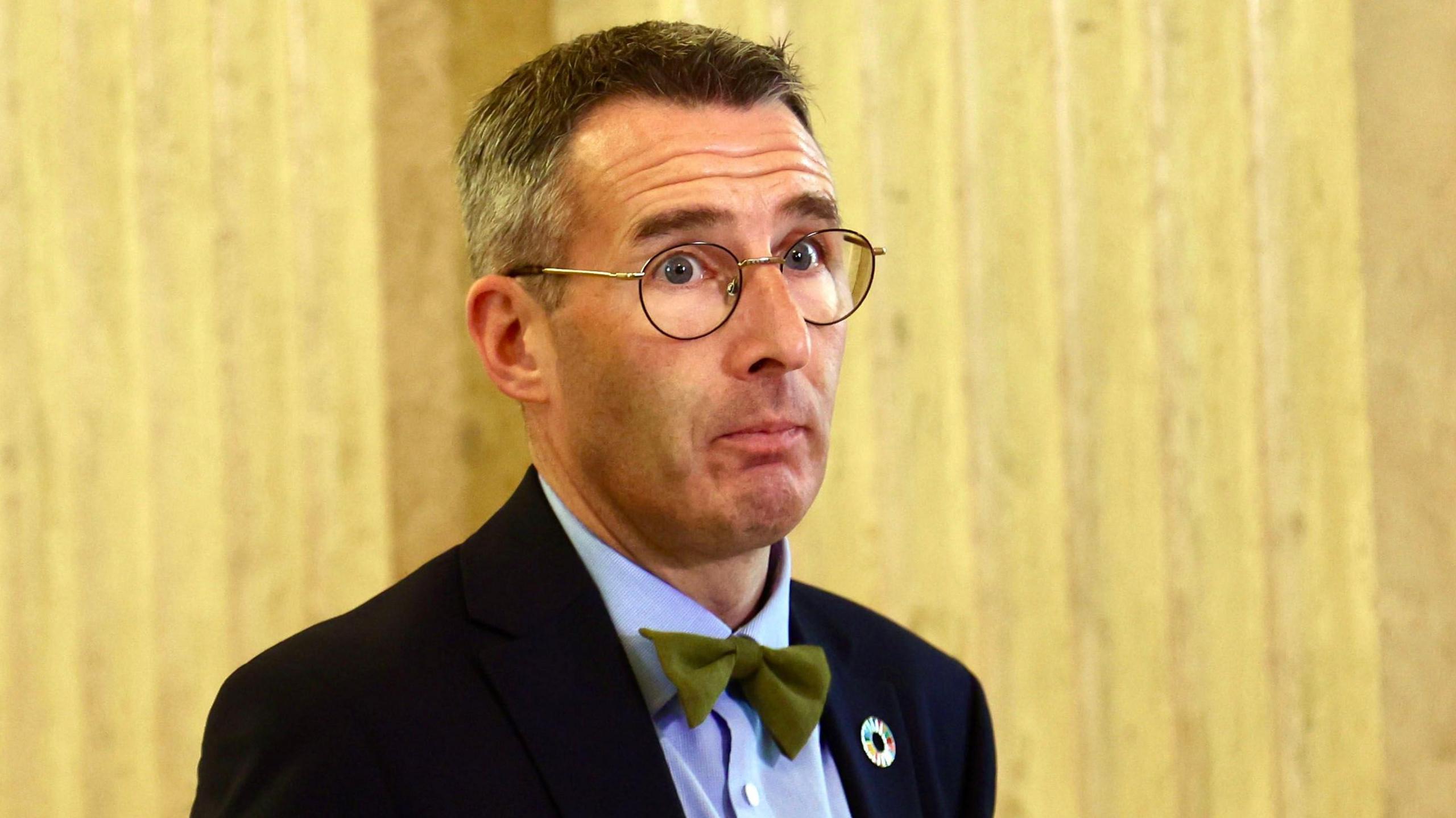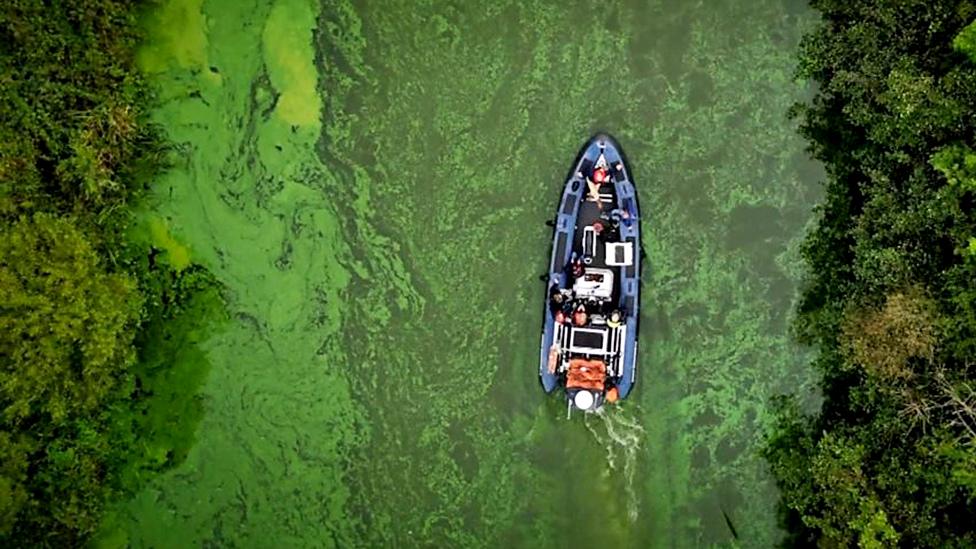Environment watchdog closes investigation into Daera

A roadmap to tackle environmental challenges like Lough Neagh is "crucial".
- Published
The UK’s environment watchdog has closed another of its three investigations into the Department of Agriculture, Environment and Rural Affairs (Daera).
The Office for Environmental Protection (OEP) had already found that Daera had failed to comply with environmental law by failing to publish an Environmental Improvement Plan (EIP) by the July 2023 statutory deadline.
The EIP was approved by the executive and published in September 2024.
The OEP said that ended that breach of the law and closed the investigation.
The OEP’s role will now move to scrutiny of progress on the EIP.
Chief executive Natalie Prosser said the plan was “crucial” in providing a roadmap to tackle environmental challenges like Lough Neagh.
“Although the EIP’s publication marks the end of our investigation, it subsequently triggers the start of our legal duty to monitor and report on this government’s progress towards delivering its environmental goals laid out in its plan," she said.
"As part of our role, we will make this progress report annually to the assembly.
“As part of our assessment, we will also examine the EIP’s effectiveness at dealing with concerning environmental trends and its impact on protecting and improving the environment.”
Earlier in October, the OEP closed its investigation into how Daera’s previous ammonia advice to planners breached environmental law.
It said a new protocol was expected this year and current guidance did not amount to failure to comply with the law.
Daera has also been investigated over possible failures to comply with environmental law in relation to Special Protection Areas for wild birds.
That investigation is continuing.
'Unsustainable pressures'
A report by the OEP last week warned of “unsustainable” pressures on biodiversity in Northern Ireland and called for policies to be implemented as quickly as possible.
Ms Prosser said that the EIP must be "supported by ambitious implementation plans and strategies that provide the detail for how protection and improvement of the environment will be realised in practice".
She added: “This includes the Nutrients Action Programme, River Basin Management Plans, Nature Recovery Strategy, and Farming with Nature Scheme.
"We also await the carbon budgets and Climate Action Plan, which will help to complete the picture of environmental governance for Northern Ireland.
“These should help drive the much-needed, tangible improvement to Northern Ireland’s environment so its people can enjoy the health and wealth benefits it can provide now and in the future.”
Related topics
- Published8 July 2024

- Published30 September 2024

- Published2 January 2024
